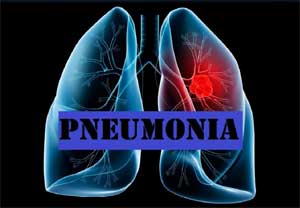- Home
- Editorial
- News
- Practice Guidelines
- Anesthesiology Guidelines
- Cancer Guidelines
- Cardiac Sciences Guidelines
- Critical Care Guidelines
- Dentistry Guidelines
- Dermatology Guidelines
- Diabetes and Endo Guidelines
- Diagnostics Guidelines
- ENT Guidelines
- Featured Practice Guidelines
- Gastroenterology Guidelines
- Geriatrics Guidelines
- Medicine Guidelines
- Nephrology Guidelines
- Neurosciences Guidelines
- Obs and Gynae Guidelines
- Ophthalmology Guidelines
- Orthopaedics Guidelines
- Paediatrics Guidelines
- Psychiatry Guidelines
- Pulmonology Guidelines
- Radiology Guidelines
- Surgery Guidelines
- Urology Guidelines
Updated Guideline for Antibiotic Use in Adults with Community-acquired Pneumonia

Community-acquired pneumonia is a common infectious disease in adults. The current guideline represents an updated version of the 2009 treatment guideline for community-acquired pneumonia in Korea. The new clinical practice guideline which appears in the journal Infection & Chemotherapy (ic) provides revised recommendations on the appropriate diagnosis, treatment, and prevention of community-acquired pneumonia in adults aged 19 years or older, taking into account the current situation regarding community-acquired pneumonia in Korea.
Recommendation and evidence levels:
The level of recommendation was divided into “Strong, Weak”, and the level of evidence was divided into “High, Moderate, Low, Very low”. A consensus was deemed reached if over 70% of the participating committee members agreed.
Summary of guidelines on antibiotic use for community-acquired pneumonia:
Diagnosis of pneumonia
KQ 1. For adults who may have contracted community-acquired pneumonia, are the tests used to identify causative helpful for selecting therapeutic antibiotics?
Recommendation
|
KQ 2. For adults who may have contracted community-acquired pneumonia, is the urinary S. pneumoniae antigen test useful for selecting therapeutic antibiotics?
Recommendation
|
KQ 3. Is the Legionella urinary antigen test helpful for selecting therapeutic antibiotics for adults who may have contracted community-acquired pneumonia?
Recommendation
|
KQ 4. Is a blood culture useful for choosing therapeutic antibiotics for adults who may have contracted community-acquired pneumonia?
Recommendation
|
Hospitalization criteria for pneumonia
KQ 5. For adults who may have contracted community-acquired pneumonia, does making a hospitalization decision according to hospitalization criteria produce good prognoses?
Recommendation
|
KQ 6. Of CURB-65 and PSI, which are hospital and intensive care unit (ICU) admission criteria, which one will lead to better prognoses for adults who may have contracted community-acquired pneumonia?
Recommendation
|
KQ 7. For adults who may have contracted community-acquired pneumonia, does making an ICU admission decision according to hospitalization criteria produce good prognoses?
| Recommendation Patients with community-acquired pneumonia who require mechanical ventilation or have septic shock must be hospitalized in ICU (level of recommendation: strong, level of evidence: moderate).
|
Treatment of pneumonia
KQ 8. What are the first choices of antibiotics in the outpatient treatment of patients who may have contracted community-acquired pneumonia?
Recommendation
|
Recommendation
|
KQ 9. For patients who may have contracted community-acquired pneumonia, and are hospitalized in an ICU, does the β-lactam /macrolide (or respiratory fluoroquinolone) combination therapy produce better prognoses than the β-lactam monotherapy?
Recommendation
|
KQ 10. What is the adequate duration of antibiotic treatment for patients who may have contracted community-acquired pneumonia?
Recommendation
|
KQ 11. For patients who may have contracted community-acquired pneumonia, when is it appropriate to switch from intravenous antibiotics to oral antibiotics?
Recommendation
|
KQ 12. For patients who may have contracted community-acquired pneumonia, when is the appropriate time to be discharged?
Recommendation
|
Read Also:Community Acquired Pneumonia ,Bacterial-Standard Treatment Guidelines
KQ 13. For patients who may have contracted community-acquired pneumonia, are oxygen therapy, low-molecular-weight heparin therapy, and early ambulation helpful?
Recommendation:
|
KQ 14. For patients who may have contracted community-acquired pneumonia and are admitted to ICU for treatment, does the β-lactam/macrolide (or respiratory fluoroquinolone) combination therapy lead to better prognoses than the β-lactam monotherapy?
Recommendation:
- For patients requiring ICU admission, the β-lactam + azithromycin/fluoroquinolone combination therapy is recommended over the β-lactam monotherapy (level of recommendation: strong, level of evidence: moderate).
KQ 15. For patients who may have contracted community-acquired pneumonia and who are in admitted to ICU for treatment, does the β-lactam/macrolide (or respiratory fluoroquinolone) combination therapy lead to better prognoses than the respiratory fluoroquinolone monotherapy?
Recommendation
|
KQ 16. For patients who may have contracted community-acquired pneumonia and who are admitted to ICU for treatment, does a treatment against Legionella lead to better prognoses?
Recommendation
|
KQ 17. For patients who may have contracted community-acquired pneumonia and who are admitted to ICU for treatment, does steroid therapy lead to good prognoses?
Recommendation
|
Assessment of the effectiveness of pneumonia treatment
KQ 18. For patients who may have contracted community-acquired pneumonia, are follow-up chest-X-rays useful for assessing treatment response?
Recommendation
|
Recommendation
|
KQ 19. For patients who may have contracted community-acquired pneumonia, is the C-reactive protein (CRP) test useful for assessing therapeutic effects?
Recommendation
|
KQ 20. For patients who may have contracted community-acquired pneumonia, is the procalcitonin test useful for assessing therapeutic effects?
Recommendation
|
Adjuvant treatment and prevention of pneumonia
KQ 21. For adults who have contracted community-acquired pneumonia, and have the risk factors of S. pneumoniae infection, can vaccination against S. pneumoniae prevent community-acquired pneumonia?
Recommendation
|
KQ 22. Does smoking cessation education prevent community-acquired pneumonia among adults who have contracted community-acquired pneumonia?
Recommendation
|
For more reference log on to https://doi.org/10.3947/ic.2018.50.2.160

Disclaimer: This site is primarily intended for healthcare professionals. Any content/information on this website does not replace the advice of medical and/or health professionals and should not be construed as medical/diagnostic advice/endorsement or prescription. Use of this site is subject to our terms of use, privacy policy, advertisement policy. © 2020 Minerva Medical Treatment Pvt Ltd